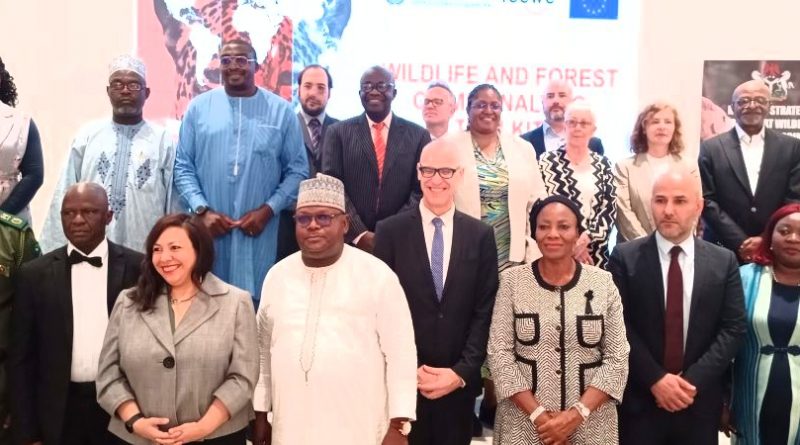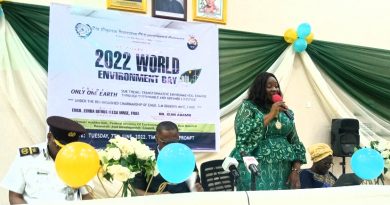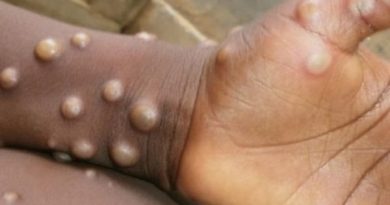FGN, UNODC collaborate to launch Analytic Toolkit to Combat Wildlife Crime
The Federal Government of Nigeria and the United Nations Office on Drugs and Crime (UNODC), on Tuesday launched the International Consortium on Combating Wildlife Crime (ICCWC) Toolkit to combat wildlife and forest crime.
Speaking at the event, the Minister of Environment, Mohammed Abdullahi who was represented by the Director, Planning, Research and Statistics, Malam Stanley Jonah said the tool kit will assist in upscaling the current tempo in the fight against wildlife crime and directly contribute to what is needed to reverse the negative trend in the country. He added that the Toolkit represents a complete tool needed to drive and achieve the country’s vision, mission, and goals as well as a global deal for nature.
The Minister commended the ICCWC in its collaborative effort via its five inter-governmental organizations in strengthening criminal justice systems and providing coordinated support at national, regional, and international levels to combat wildlife and forest crime.
“The ICCWC toolkit is not going to be just an addition to our collection, but must be operationalised as a catalyst to strengthen criminal justice systems and provide coordinated support to combat wildlife and forest crime not only in Nigeria but in the West African sub-region.
In his opening remarks, the UNODC Country Representative, Oliver Stolpe noted that organized criminal trade of wildlife and forest products through Nigerian ports has created a threat to biodiversity across the entire region.
He admitted that although Nigeria has put in effort in several areas such as the adoption of the first National Strategy to Combat Wildlife and Forest Crime, the recent establishment of the Wildlife Enforcement Task Force as well as the ongoing efforts to review the legislative framework and to build the capacity of the criminal justice system to tackle wildlife and forest crime, however, these efforts have not yet been able to reverse the trend of excessive illegal extraction or to put an end to the role of Nigeria as a regional hub for the illegal trade in wildlife and forest products.

“The legal framework continues to evidence gaps, in particular as concerns the penalties foreseen by the law. And recent cases suggest that investigators, prosecutors and judges appear to require further capacities and resources to mount an effective and credible criminal justice response, in particular when organized crime is involved.” he said, adding that whatever the gaps are, a much more thorough analysis is required in order to provide Government as well as its international partners with the necessary insights to understand the most relevant shortcomings and to address them.
He also disclosed that the Toolkit has assisted 20 governments around the globe in conducting comprehensive analysis of the strengths and weaknesses of their national preventive and criminal justice responses to wildlife and forest crime.
Benefits of the toolkit include: Identify key areas to strengthen national responses to wildlife and forest crimes; Develop tailor made work plans for capacity building and technical assistance and forest crimes; Pave the way for effective and sustainable infrastructure to address wildlife and forest crime.
Other are; Raise awareness and donor support to facilitate cooperation and influence international activities; Assist countries in developing concrete proposals based on the best available data to present to the donor community; and Mobilize financial and technical support to address key gaps in national responses to wildlife crime.
Over 1000 species are facing extinction thanks to human activity. Data suggest an increasing role of Nigeria in trafficking in ivory. Despite a global decline in trafficking in ivory since 2011-2013, Nigeria has been identified as part of the illegal trade chain in seizures of 5,629 kg in the period 2009-2011, to approximately 11,769 kg in the period 2012-2014, and to approximately 12,211 kg in the period 2015-2017.




